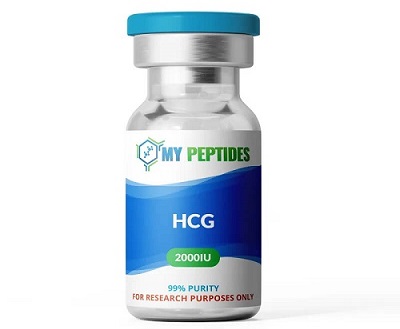
Imagine a hormone that moonlights as both a pregnancy protector and a hormone whisperer. That’s HCG—Human Chorionic Gonadotropin—a glycoprotein produced primarily by the placenta in early pregnancy. Its main gig? Supporting the corpus luteum, which in turn produces progesterone to sustain pregnancy until the placenta is mature enough to take over the hormonal heavy lifting.
Structurally, HCG is a two-part molecule:
-
Alpha subunit – Shared with LH, FSH, and TSH. Think of it as the “generic intro.”
-
Beta subunit – The part that makes HCG uniquely itself. Like a signature dance move no other hormone can quite replicate.
But the intrigue doesn’t stop at pregnancy. HCG is also produced by certain tumor cells, which makes it a valuable biomarker in cancer research. Whether you’re studying fertility, oncology, or hormonal pathways, the demand for HCG for sale is driven by its versatility.
How Does HCG Work?
Human Chorionic Gonadotropin isn’t just floating around aimlessly. It’s busy interfacing with LH receptors, orchestrating a hormonal symphony. Here's what researchers have uncovered about its core functions:
-
Supports Corpus Luteum: Helps maintain early pregnancy by boosting progesterone output.
-
Stimulates Placental Development: Promotes the growth and proliferation of trophoblast cells—key players in forming the placenta.
-
Modulates Immune Tolerance: Convinces the mother's immune system to accept the embryo rather than reject it like a bad first date.
-
Regulates Fetal Development: Influences various adaptations in the maternal body to support fetal growth.
-
Diagnostic & Therapeutic Applications: From detecting ectopic pregnancies to aiding fertility treatments—HCG pulls more weight than it gets credit for. Additionally, HCG for Cancer Research has been gaining attention for its potential to offer breakthroughs in understanding tumor growth and potential therapies.
Potential Research Applications of HCG
The real-world implications of HCG in scientific and medical research are broad. Here are just a few areas where it shines:
1. Fertility Treatments
In women, HCG is commonly used to trigger ovulation, especially in IVF protocols. In men, it stimulates the testes to produce testosterone and maintain sperm production. In short: it’s a hormonal hype-man for reproductive success.
“We had a couple in the clinic—we’ll call them Jack and Mia. After two years of trying everything but standing on their heads, a well-timed dose of HCG helped trigger ovulation, and nine months later, they welcomed twins. The science delivered...twice.”
2. Cancer Diagnostics
Some tumors produce HCG, making it a reliable marker for cancers like testicular cancer and choriocarcinoma. Monitoring HCG levels gives researchers a window into tumor behavior and treatment efficacy.
3. Endocrine & Hormonal Studies
Because HCG mimics LH, it’s a useful probe in exploring hormonal feedback loops, particularly in gonadal and pituitary studies. It helps decode the endocrine system’s encrypted messages.
4. Athletic Hormone Recovery
In the world of performance enhancement, HCG is studied for its ability to preserve testicular function during or after testosterone replacement therapy (TRT) or anabolic steroid cycles. It helps avoid hormonal withdrawal symptoms that would make even the toughest bodybuilder wince.
5. Weight Loss Research
While still debated, some research looks at HCG’s role in appetite suppression and fat metabolism during calorie-restricted diets. Spoiler: jury’s still out, but the interest is real.
Are There Side Effects?
Like any potent compound, HCG can cause side effects, although most are mild:
-
Headaches
-
Fatigue
-
Irritability
-
Injection site pain or redness
In male subjects, gynecomastia (aka unwanted man boobs) and water retention have been reported due to hormonal fluctuations. Proper storage and dosing protocols are critical to minimizing these effects and ensuring valid research outcomes.
HCG: Research-Grade Specifications
-
Molecular Formula: C₁₀₅H₁₆₉N₂₇O₃₂
-
Molar Mass: 2321.6 g/mol
-
Appearance: White crystalline powder
-
Peptide Purity: >99%
Note: HCG from My Peptides is intended for research purposes only. It is not approved for human or veterinary use.
Why Researchers Choose HCG
HCG is a hormone that does more than one thing well—which is rare in both biology and people. Whether you're exploring fertility treatments, studying cancer markers, or testing endocrine responses, HCG continues to be a linchpin of reproductive and metabolic research.
Back to Homepage
And if we may borrow from the legendary Robin Williams:
“Science is God's way of saying you're getting warmer.”
With HCG, you’re not just warmer—you’re on fire.
